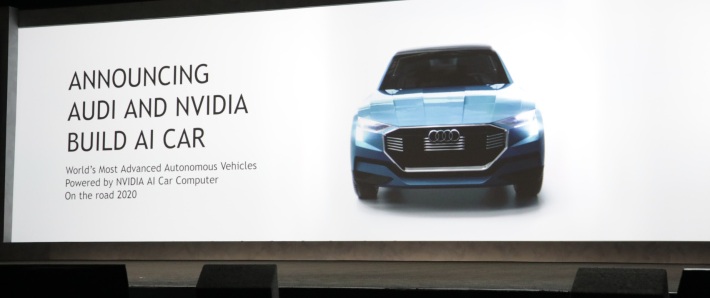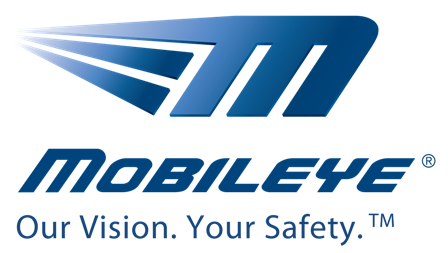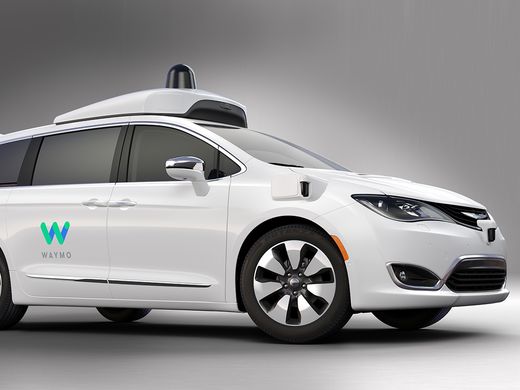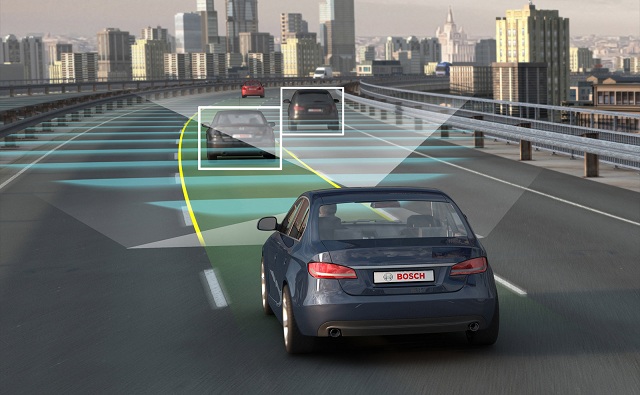Now Reading: Nvidia and Audi aim to bring a self-driving AI car to market by 2020
-
01
Nvidia and Audi aim to bring a self-driving AI car to market by 2020
Nvidia and Audi aim to bring a self-driving AI car to market by 2020

Nvidia revealed a number of new partners for its efforts to bring self-driving automobiles to public roads in a production capacity recently, however the most significant without a doubt was Audi. Nvidia is dealing with the automaker to bring its AI driving tech, which is offered thanks to its newest in-car self-driving computing software and hardware, to market by 2020.
Nvidia’s collaboration with Audi is not totally brand-new– the companies have been collaborating for ten years, though clearly not on self-driving technology for all that time. The Nvidia collaborate is ambitious, nevertheless, in regards to its timeline, with the goal of getting Level 4 autonomy (complete self-driving, with manual driving choices) offered by 2020.
Audi currently has an autonomous test automobile here at CES this year– it’s a Q7 with AI on board that has been trained for just 4 days, however is currently driving itself effectively. Nvidia’s pitch with AI in the car is that its deep learning ability can allow this type of quick ramp; other techniques aren’t as most likely to create these type of fast leaps in proficiency.
Nvidia CEO Jen-Hsun Huang kept in mind on phase that this self-driving Audi is showing ability “not end of this year, not end of next year– right now,” which is undoubtedly rather a task for a car with that short of training duration. The majority of the test cars in operation at CES have been trained for far longer on their test paths.
The AI system that Nvidia discussed at CES is based upon its new Xavier computing platform, which allowed self-driving, however likewise its brand-new AI-based Co-Pilot, which can aid with interim levels of autonomy through functions including facial acknowledgment and gaze tracking.
This might be the most considerable claim in regards to a company timeline for providing extremely automated driving, with a roadmap that counts on checked automotive-grade production computing platform, so it is big news.
Stay Informed With the Latest & Most Important News
Previous Post
Next Post
-
 01Polestar Boss Says It’s Time To Outrun BMW M And Mercedes-AMG
01Polestar Boss Says It’s Time To Outrun BMW M And Mercedes-AMG -
 02Spy Shots: 2027 Mitsubishi Pajero Spotted in Testing Ahead of Possible U.S. Return
02Spy Shots: 2027 Mitsubishi Pajero Spotted in Testing Ahead of Possible U.S. Return -
 03Spy Photos: VW ID. Polo GTI Goes Electric with 223 HP and 280 Miles of Range
03Spy Photos: VW ID. Polo GTI Goes Electric with 223 HP and 280 Miles of Range -
 042026 Toyota Hilux EV: A Powerful Truck with Silent Torque
042026 Toyota Hilux EV: A Powerful Truck with Silent Torque -
 05The Controversial Ford Voodoo V8 That Was Killed Off Too Early
05The Controversial Ford Voodoo V8 That Was Killed Off Too Early -
![2027 Mercedes-Benz S-Class Debuts with V8 Engine [Photo Gallery]](https://speedlux.com/wp-content/uploads/2026/01/2027-Mercedes-Benz-S-Class-33-155x125.jpg) 062027 Mercedes-Benz S-Class Debuts with V8 Engine [Photo Gallery]
062027 Mercedes-Benz S-Class Debuts with V8 Engine [Photo Gallery] -
 07Hyundai Palisade’s Breakout Year Shows How Quickly the Market Can Turn
07Hyundai Palisade’s Breakout Year Shows How Quickly the Market Can Turn


![2027 Mercedes-Benz S-Class Debuts with V8 Engine [Photo Gallery]](https://speedlux.com/wp-content/uploads/2026/01/2027-Mercedes-Benz-S-Class-33-700x394.jpg)












































